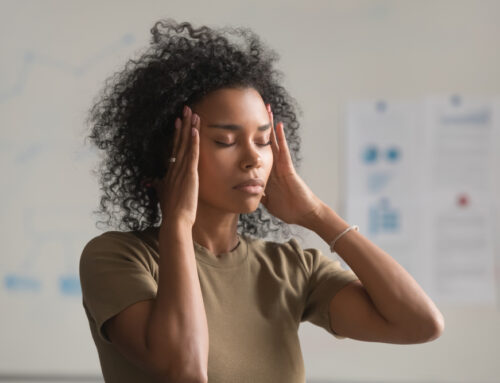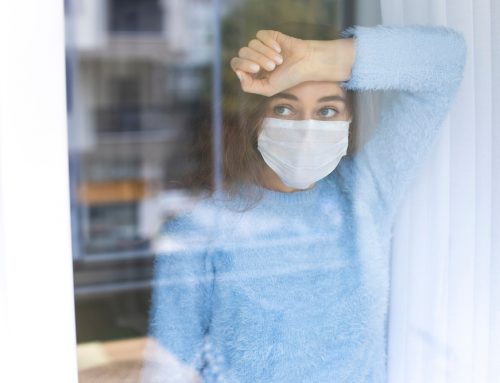The clouds roll across the sky and the days get dark. This marks the beginning of winter for many people, a trigger for Seasonal Affective Disorder (SAD). If you suffer from SAD you should focus on preparing for this season BEFORE the winter arrives with these simple tips:
 Incorporate Light Therapy (Begin Early Fall)
Incorporate Light Therapy (Begin Early Fall)- Consider Vitamin D in the right dose!
- Supplement with Melatonin at the right time!
- Nutrition to beat the blues
- Exercise
- Do what you love and love what you do!
Light Therapy
Natural light affects brain chemicals related to mood. If you live at a northern latitude there are six months of the year (late October and early March) where you are exposed to insufficient light and a reduced spectrum of light. If you suffer from seasonal depression it is important to light therapy into your daily routine. These therapies should begin in the early fall (September) before you begin to feel symptoms.
a) Phototherapy/Bright Light Therapy: Light therapy mimics natural light which affects brain chemicals and has been found to alleviate seasonal depression. The length of therapy depends on the strength of your light box. A10,000lux light box may only require 30 minutes per day while a 2,500lux box requires 2hours per day. It is necessary for your eyes to be exposed – not directly (don’t look at the light box) but this therapy is not effective if you are sleeping. This therapy is most effective when done in the early morning or on rising. For more information about light therapy please follow this link: http://www.mayoclinic.com/health/light-therapy/MY00195/DSECTION=why%2Dits%2Ddone
b) Full spectrum lighting: Replace your household light bulbs with full spectrum lighting, which helps to mimic natural light.
c) Keep your living quarters sunny and bright during the day. Open curtains and let the sun in! But as the night closes in dim your lights or use lamps. This helps to mimic the natural rhythms of your body and will promote healthy sleep.
d) Get Outside! Even in the winter exposure to sunlight can improve mood. Exposure to sunlight for 20 minutes or more today can dramatically improve mood.
e) Take a vacation mid-winter. This will give you a good dose of natural light and allow you to have a little fun (both effective remedies for SAD).
Vitamins D Supplementation … at the right dose!
Vitamin D is activated by exposure to natural light and plays an important role in many bodily functions from bone metabolism and density to mood regulation. The recommended daily allowance (RDA) of Vitamin D of 400IU is well below what is needed for the average person. A minimum dose of 1000IU is required for daily supplementation and if you suffer from seasonal depression you likely need more. To ensure you are taking the right dose and to avoid any toxicity, inquire about biannual Vitamin D testing (25-Hydroxy Vitamin D). For information on the relationship between Vitamin D and Mood Disorders please follow this link: http://www.ncbi.nlm.nih.gov/pmc/articles/PMC2908269/
Melatonin Supplementation … at the right time of day!
Melatonin helps to regulate our circadian rhythms and sleep cycles. Darkness triggers the release of melatonin, which facilitates sleep. In some individuals, shorter days with longer periods of darkness trigger an imbalance in melatonin secretion that can affect mood. Supplementation of melatonin at the right time of day can help to regulate the circadian rhythm. For more information about the time of day to supplement please follow this link: http://www.nimh.nih.gov/news/science-news/2006/properly-timed-light-melatonin-lift-winter-depression-by-syncing-rhythms.shtml.
Nutrition to Beat the Blues
Wanting to improve your mood during dark days? Follow these diet tips: Cut out simple carbohydrate consumption, have a protein source at each meal, include healthy sources of fat and stay hydrated. There are many things you can do with your diet to improve mood but these are the simple points.
a) People with depression crave simple carbohydrates, which promote the release of serotonin and other brain chemicals that enhance mood. However, this is followed by a crash and further cravings, which leave you feeling lethargic and heavy.
b) Having protein at each meal will stabilize blood sugar and help to prevent simple carb cravings.
c) Fats are an important for the structure and function of our brain and nervous system, which influences mood. Restricting fat from your diet will not help SAD. In fact, a lot of research has gone into the mood enhancing properties of fish oils and other healthy fats.
d) Keeping hydrated will also prevent sugar cravings. Sometimes when the body is dehydrated it sends out signals that it is hungry. When you are craving sweets have a glass of water and wait 20 minutes to see if you are still hungry.
Exercise
Oh… It’s only the best anti-depressant on the planet! Exercise promotes the release of endorphins and provides a natural detoxification and regulation of blood sugar, which improves mood and leaves you feeling great.
Do what you love and love what you do!
Have fun in life. Whatever that means for you. And enjoy yourself frequently, even if you are feeling down and tired. On a technical level, repetition of positive experiences reinforces and builds positive reward networks in the brain. On a spiritual level, connecting with activities you love helps you stay in alignment with your true self. Depression and ‘dis’-ease often set in when we are living inconsistent to our personal values and passions. Not sure what you are passionate about? Find a life coach to help you tap into your inner self.





